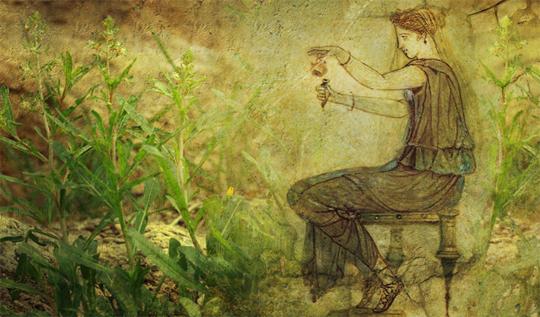Researchers from the Pablo de Olavide University in Seville working on the eastern Mediterranean shores have discovered the “mother” plant of Roman perfumes.
Called Reseida minoica, the plant grows on the coast of Crete (Gavdos Island, Greek's southernmost island), Cyprus and southern Turkey. It was used in Roman times due to the fragrance of its flowers to make perfumes.
"The importance of this discovery is that Reseda minoica is the maternal ancestor of a cultivated species of hybrid origin, Reseda odorata, used since Roman times due to the fragrance of its flowers, and whose essence was used in the ancient cosmetics industry,” said Pedro Jiménez Mejias, co-author of the study and a researcher at the Pablo de Olavide University (UPO).
"This species belongs to the genus Reseda of the Resedaceae family, related to the Cruciferae - which includes plants such as cabbage, mustard and radish - and grows on limestone substrates in scrubland near the coast," explained Santiago Martín Bravo, co-author of the study and also a researcher at UPO.
The scientists believe that the plant is "at present rare," and could require protection so that it does not become extinct. "If this were to happen, we would lose part of the Mediterranean's plant genetic resources, with a potential consequent loss for humankind in terms of use and opportunity," Jiménez said.













